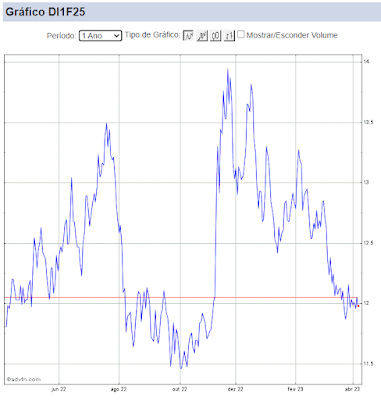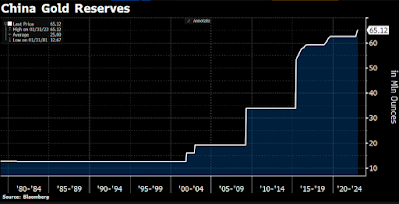No news is good news? It seems so...
Até o momento, o final de semana foi de poucas novidades para o cenário, mas com algumas informações interessantes para o curto-prazo.
Brasil – Os jornais continuam divulgando o que seriam possíveis vazamentos em torno da delação da Odebrecht, além de especulações em torno de outras investigações ainda em curso em relação a Operação Lava-Jato. Por ora, nada que altere de forma substancial o cenário político de curto-prazo.
A agenda de reformas econômicas parece encaminhada, mesmo sabendo que o debate em torno da Reforma da Previdência será maior do que a PEC do Teto dos Gastos.
EUA – Pela primeira vez desde sua posse, Trump mostrou moderação em seu discurso (e sua postura) em relação ao Japão e a China, em mais um sinal extremamente positivo para o cenário. Ainda existem riscos no tocante a política externa que será adotada pelo novo presidente, mas os sinais recentes mostram que Trump é uma pessoa agressiva, porém pragmática, e buscará um caminho visando o melhor, segundo sua perspectiva, para a economia do país.
A Coréia do Norte, em um claro movimento de desafio aos EUA, promoveu novos testes balísticos, que foram prontamente (e duramente) criticados por EUA e Japão.
Em relação ao plano econômico de Trump, o Morgan Stanley fez um bom resumo sobre o estágio atual do debate:
Renewed optimism about fiscal policy after President Trump's comments about an upcoming announcement on taxes Thursday, potentially in his February 28 speech to a joint session of Congress, continued in a slight further reversal higher in Treasury yields on Friday, as investors also continued to position for Fed Chair Yellen's testimony next week, building in a little bit more, but still very little, risk of a March rate hike. In what were important and encouraging further background details for the President's comments, Bloomberg reported ("White House: Cohn-Led Tax Plan Is Real and It’s Phenomenal"), based on discussions with an unnamed White House official, that National Economic Council Director Gary Cohn "is leading the effort to craft President Donald Trump’s plan to overhaul taxes that will be released within weeks" and that "congressional leaders have been consulted on the blueprint." That would likely have included the person writing the bill in Congress, House Ways and Committee Chairman Kevin Brady, a steadfast advocate of a border adjustment version on corporate tax reform. Indeed, Representative Brady told Fox News he's been "working very closely" with the White House on a tax bill, and Congress and the Administration are "going in same direction in a good way," and he's "pretty positive about where this is going." He just said "Yes" when asked if they're all on the "same page." In a new twist, Brady also said his "strong preference" was to do both corporate and individual tax cuts at the same time, and he's "hopeful we move those together. But we're having a lot of discussions on timing and sequence." He also wants to move quickly enough that it makes sense for the tax changes to be retroactive to the start of the year: If "we move quickly, I think it would make sense to go retroactive. If it's toward the end of the year, we will have to take a look at that."
After what had been rising market concerns in recent weeks that Congress risked getting bogged down with trying to replace Obamacare while the president was focusing on immigration and national security issues, to find out in the past two days that Congress and the White House have, in fact, actually been working together to reach agreement on a tax plan to be released soon has helped restore confidence in the fiscal stimulus story. If Chairman Brady sees everyone coming together on a common approach, that suggests he's had success in convincing the President of the merits of his border adjustment framework, which could have big implications for inflation, growth, and relative winners and losers for U.S. companies among importers and exporters beyond more straightforward considerations of just fiscal stimulus.
Posição Técnica – Os dados da CFTC voltaram a apresentar queda nas posições compradas em dólar no mundo, mostrando um quadro cada vez mais saudável neste aspecto. Segundo a Goldam Sachs:
|
|
Existe uma tese interessante ganhando corpo no mercado nos últimos dias. De acordo com alguns analistas, o mercado espera, desde a vitória de Trump, um cenário de maior volatilidade, de “tail risks” mais acentuados. Assim, a posição técnica estaria mais conservadora o que estaria ajudando um ambiente de menor volatilidade e maior otimismo, a medida que o tempo passa e nenhum risco concreto acaba de efetivando.
Segundo David Zervos: If “stability leads to instability,” then does "instability lead to stability"? Think about it like this: If everyone is expecting Trumpian fat tails, and everyone is anxious about how hard he will pull on these four new policy levers, then their portfolios will hardly contain highly levered, short vol positions. This much uncertainty just brings people close to home. And further, how many people would be shocked by a 10% border tax, a 20% tariff on Mexico, a reduction in corporate taxes to 15%, or a repeal of Dodd-Frank? No one. The key here is that the market is set up for surprises – the tails are fat, and everyone knows they are fat. Hence, when a new headline hits about any potential policy change, there is very little forced de-risking. Instability is priced into the market, and this stance actually brings us stability (i.e. 6% realized spoo vol for the past month).
I know many folks who seem to be scratching their heads over how the market can be so stable with all of these potential changes. But I think this concept I am describing makes sense! For now, while we wait to see the specifics of the policy changes, the market is in a “reverse Minsky moment,” or what I will call a “Yksnim moment.” Of course, just as with Minsky moments, it too will pass. Clarity on the Trumpian policy levers will get folks excited about shrinking the perceived tail risks and levering up a view. But until then, I suppose that all of this instability is simply going to just create more stability.


Comentários
Postar um comentário